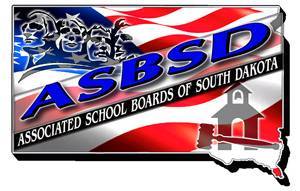Two education funding related bills were taken down in committee on Tuesday (2/20).
On an 8-1 vote, members of the House Appropriations committee defeated House Bill 1263, which increases the allowable general fund cash balances for school districts.
The bill called for an increase in the fund balance caps, which were established in the 2016 funding formula overhaul and are tiered by school enrollment, by 10 percent. The caps are applicable beginning in the 2018-19 school year.
“I’m only proposing a modest change,” Rep. Kyle Schoenfish, the bill’s prime sponsor, said during his testimony, adding that he’s “not thrilled about having limitations on fund balances” in the first place as they assist districts deal with enrollment fluctuations and rising insurance costs, among other issues.
“Fund balance helps (schools) meet (their) need throughout the whole year.”
S.D. Department of Education CFO Tami Darnall said the fund balance caps were “another tool” for the state to ensure school districts were putting dollars provided towards teacher salaries and noted the cash balance caps are measured against the district’s “lowest monthly cash balance.”
“It’s a cap on how much they can have on that lowest month,” Darnall said. She noted schools who exceed their cash balance cap can apply for a waiver from the School Finance Accountability Board.
ASBSD was monitoring the bill.
On a unanimous vote, Appropriators ended House Bill 1276, which provides a property tax exemption to parents of certain students receiving alternative instruction, before a debate from both sides even began.
ASBSD opposed the bill, but didn’t have the opportunity to speak against it as Rep. Sue Peterson, the bill’s prime sponsor, completed a lengthy monologue on the bill’s merits by requesting it be tabled, which is a non-debatable motion.
HB 1276 called for a partial property tax exemption for parents or guardians of homeschool students who were “denied or restricted” access to district activities – another turn in the lengthy debate over homeschool student participation in public school activities, which played out in the twice defeated House Bill 1120.
Before requesting the motion to table and denying opponents the opportunity to share their views, Rep. Peterson said it was the legislature’s “duty to ensure that the minority has voice” – a reference to the homeschool community, which, in 2016-17, had a reported average daily membership of more than 4,500 students, equating to the fourth largest district in enrollment among public schools that year.
For updates from legislative session, check the ASBSD Blog, Bill Tracker page, Twitter feed and Facebook page.
